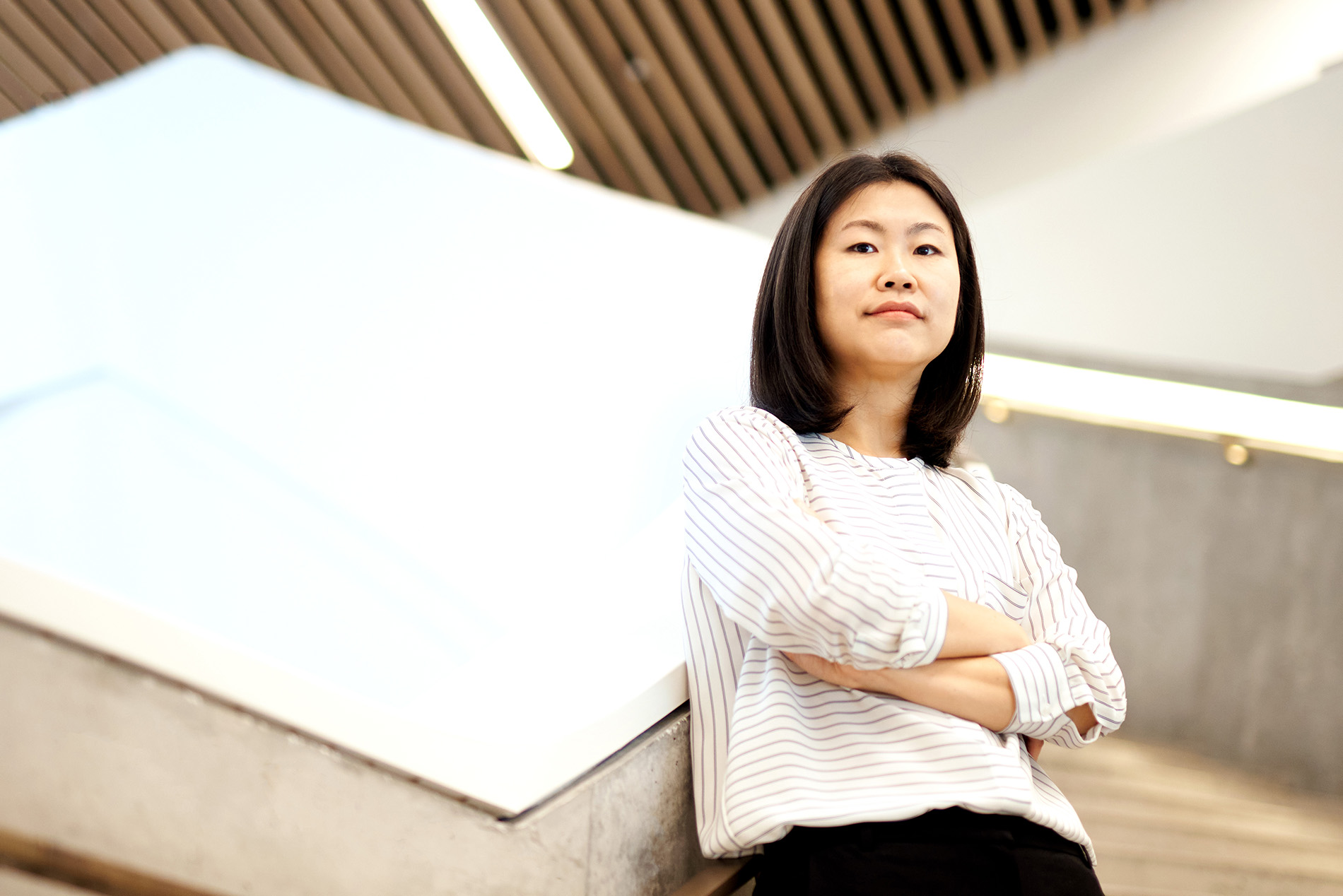Unravelling the reality of ethical apparel in global supply chains
By studying global supply chains, Jinsun Bae (Assistant Professor, International Business) sheds light on the ways clothing companies are trying to fulfill sustainability objectives.

Social and environmental sustainability are prominent concerns for many Western clothing companies. By emphasizing their ethical commitments, multinationals like H&M Group and Inditex (Zara’s parent company) appeal to consumers whose purchasing decisions are influenced by a concern for workers and the planet.
Sprott researcher Jinsun Bae has noticed, however, that because these companies don’t own production facilities themselves, implementation of their sustainability objectives typically falls to external suppliers, many of whom are located in regions with inadequate infrastructure, weak labour laws, and escalating effects of climate change, such as extreme heat.
“We demand ethical production, but we don’t really know what goes into making that happen. I want to understand the reality of ethical production and make that knowledge accessible to suppliers, companies, and consumers.”
Informed by her fieldwork, Jinsun’s findings reveal that suppliers are under constant pressure to balance cost-efficiency and quality, on one hand, with fulfillment of private labour regulations and environmental sustainability targets on the other. It’s a taxing situation, at best.
Jinsun’s interest in the sustainability of global supply chains stems from work she did with a Korean NGO that advocates for human rights-based development in Northeast Asia. Inspired by the North Korean refugees whom she met at that time, Jinsun wanted to develop the knowledge and skills necessary to help people in countries like North Korea rebuild their society and benefit from foreign investment and international development aid when their countries open up.
As a PhD student, Jinsun was immediately drawn to Myanmar because, like North Korea, the country had experienced a long period of political and economic isolation. Unlike North Korea, Myanmar was, at that time, opening its economy and transitioning away from militaristic authoritarianism–a reform process that abruptly ended with a military coup d’etat in 2021. Although the situation in Myanmar has changed since she conducted fieldwork there, the pattern that Jinsun observed remains instructive: the large influx of Western brands in Myanmar’s apparel industry brought with it not only new economic opportunities, but also the requirement that suppliers meet specific ethical standards. Many local apparel manufacturers struggled to understand and implement this new requirement, while trying to offer cost-competitive production compared to peers in other apparel producing countries.
Clearly, global supply chains are complex and dynamic, and Jinsun has developed a multi-faceted research program to study them. One stream sees her take a broad overview of labour practices in global supply chains writ large. Building on a project she undertook as a post-doctoral fellow at Cornell University, she is analyzing labour compliance audit results of the suppliers of multinational companies in seven countries to examine labour improvements that result from the pressure global companies exert on suppliers. This work also explores the factors that hinder or enable that improvement.
In another stream, Jinsun explores how supply chain actors operating in so-called emerging or transition countries navigate the demands around sustainable production practices imposed upon them by global communities.
“Obviously, locals have their own ideas about how to do things, which may be different from what is internationally defined or what is expected by international communities.”
This work recently took her to back to Asia, where she studied supplier companies in their Korean headquarters and Vietnamese production sites as part of a project about the economic and social impacts of climate change in global apparel production.
Jinsun’s research also highlights how the discourses and best practices around sustainable production are evolving. In the case of child labour, for instance, suppliers for companies with strong no-child-labour policies who discovered children working in their factories used to just fire the underage workers. Now, the goal is to help them with a soft landing by finding ways to place the children in an educational environment or to work part-time rather than full-time hours. “There is more effort to find the middle ground between what the international community and consumers demand in terms of ethical production and how to implement that desire in a way that respects local community needs and situations.”
Striking that balance can be costly and time-consuming, making it a low priority for suppliers and Western companies alike. Researchers like Jinsun thus play a vital role in upholding sustainable production practices in global supply chains.
